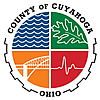How You Can Stop Elder Abuse – A Call to Action
As we close out the month of June, we remember that June 15 is not the only day we should be vigilant and aware that elder abuse occurs daily in our society.
We all have the responsibility to continue to be educated on the symptoms that cause elder abuse, learn how to recognize it, and be determined to stop it. The first step in combating elder abuse is to report it.
Division of Senior and Adult Services Centralized Intake Line: 216-420-6700
Call if you suspect any older adult in the community over the age of 60 is being abused, neglected, self-neglecting, or financially exploited.
Our role in Adult Protective Services (APS) is to go into these delicate and difficult situations to gain an understanding of what is occurring while respecting the dignity and autonomy of our clients. The investigation can lead to interventions needed to save a life, remediate a horrible situation, and put in place a care plan with measures to preserve an older adult’s dignity.
Sometimes, the fixes to the reports are simple, other times they are more complex and intricate. Nonetheless, it is our moral responsibility to protect all our citizens, especially those with impairments, those effected by the infirmities of aging, those who are frail, or those who have no other supports available.
Another way to become involved is to pay attention to legislation that revolves around senior issues. Take note of resources available in the community, learn what dollars are allocated to provide services in APS programs, and where there are shortfalls.
We also have state and local organizations such as:
- Cuyahoga County Adult Protective Collaborative (I Team)
- Ohio Coalition for Adult Protective Services
- Consortium Against Adult Abuse
These groups make it their mission to draw attention to the need for advancements in bringing awareness of elder abuse to the forefront and to provide resources.
Thank you taking the time to educate yourself about elder abuse, and for working with us to ensure our older adults are safe.

